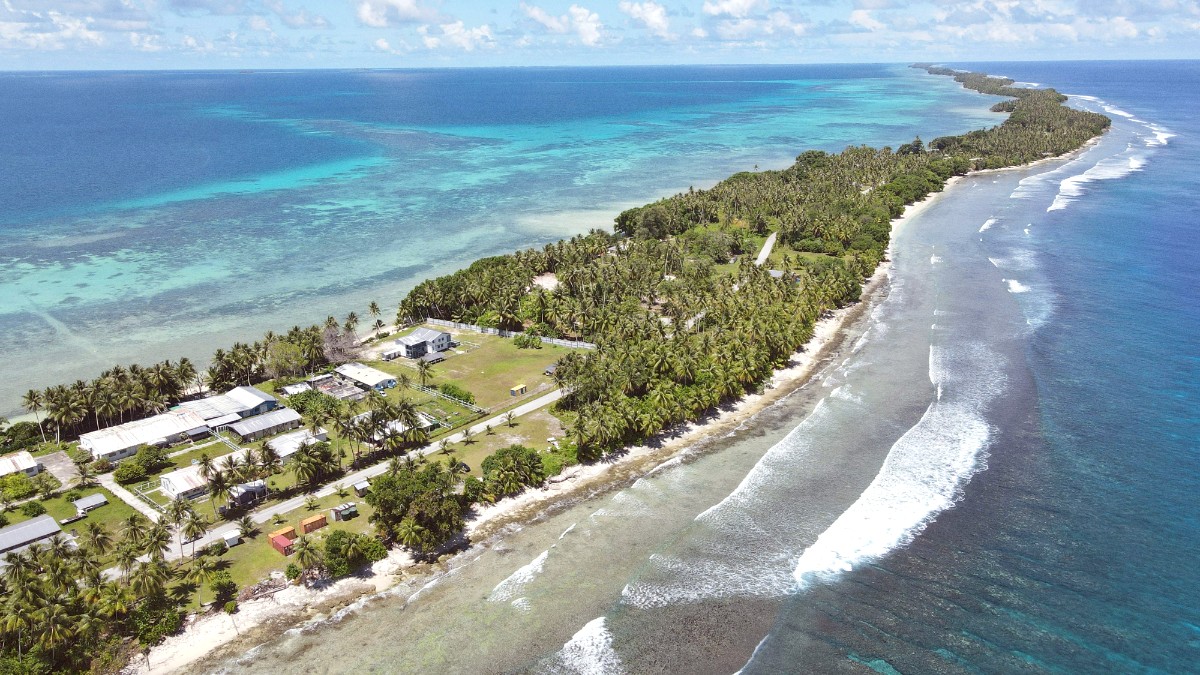
Vodafone Tuvalu (formerly Telecom Tuvalu) operates as the sole mobile network provider. Purchase local SIM cards at the Vodafone Tuvalu office in Vaiaku, Funafuti.
The Vaiaku Lagi Hotel offers Wi-Fi, sometimes for a fee. The Vodafone Tuvalu office also provides internet café services. Many guesthouses may not offer Wi-Fi, or it may be very limited.
Tuvaluan and English are the official languages. English is widely understood, especially in Vaiaku and by those in tourism or government. Learning a few basic Tuvaluan phrases is a sign of respect.
The Google Translate app can be a helpful tool for bridging language barriers. Download the Tuvaluan and English offline packs before your trip for continuous access.
Download any required information or maps offline before you arrive due to limited connectivity.
Tuvalu's business hours reflect a relaxed island pace, with some variations for public and religious holidays.
These generally operate Monday to Friday, from 8:00 AM to 4:00 PM.
Small local shops (faleoloa) have variable hours, often opening early in the morning and closing in the evening. Some may also open on Saturdays.
The Vaiaku Lagi Hotel Restaurant serves breakfast, lunch, and dinner, usually from early morning until late evening. The Funafuti Market has irregular hours, often best visited in the early morning.
The National Bank of Tuvalu operates weekdays during standard business hours (e.g., 9:00 AM - 3:00 PM).
Government offices and banks close on public holidays. Small shops and services may operate on reduced hours or close completely. Sunday is a day of rest and church observance.
Plan activities to align with business hours and be aware of holiday closures.
Cultural sensitivity enriches your visit and supports a positive impact on the local community.
A friendly "Talofa" (Hello) is the common greeting. Handshakes are frequent, especially when meeting people for the first time. Politeness and respect for elders and community leaders are highly valued.
Modesty is important in Tuvaluan culture. Women should wear shorts or skirts that cover the knees and keep shoulders covered, especially away from designated beach areas.
Tipping is not customary or expected in Tuvalu. During communal meals, wait to be served and accept food. Refusing food without a strong reason is impolite.
Always ask for permission before photographing people, especially children. Be discreet and respectful in churches or during ceremonies. Avoid photographing military installations.
Respectful interaction with locals supports a rewarding experience for everyone.
Tuvalu's infrastructure for travelers with mobility challenges is very limited. Adjust expectations accordingly.
Infrastructure remains extremely limited. Roads are generally flat, but sidewalks are often absent or uneven. Buildings typically feature steps and lack ramps or elevators.
No specific accessible attractions or transportation options cater to travelers with mobility challenges. The flat nature of Fongafale has some limited potential.
No specialized services or infrastructure exists for travelers with visual or hearing impairments. Reliance on companions or local assistance is necessary.
No specific local resources or organizations provide accessibility information for travelers with disabilities. Thorough research prior to travel is required.
Tuvalu is not set up for travelers with significant mobility needs, so plan for personal assistance.